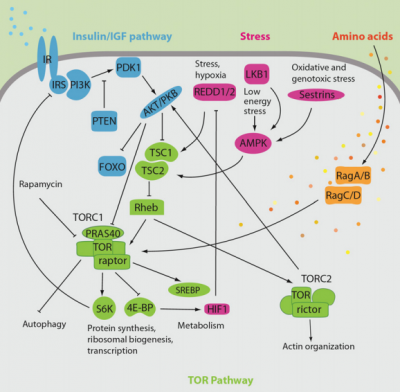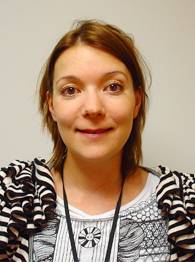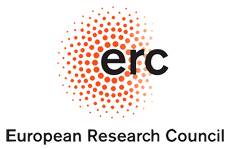Group Leader: Dr Ivana Bjedov, Senior Research Fellow
Research Technician
A new position has become available to join the Molecular Biology of Cancer Research Group.
Apply by: 18 November 2023
Research
We are interested in the regulation of growth and metabolism during cancer. Cancer is characterised by uncontrolled cell division - for cancer cells to be successful in proliferation, a major change is the up-regulation of growth pathways and the reorganisation of metabolism to produce the energy and building blocks necessary for cell division. We aim to identify novel alterations in cancer cells that are crucial for their proliferation and that distinguish them from normal cells, thereby uncovering potentially less harmful anti-cancer targets. In our research, we use the fruit fly Drosophila melanogaster, which has already greatly contributed to our understanding of cancer and the discovery of several cancer-related growth pathways. Many features of human cancer can be replicated in Drosophila. This model system has many advantages such as its short generation time, low gene redundancy, and powerful genetic techniques that allow the rapid testing of various hypotheses.
We are also investigating novel modulators of cancer, specifically autophagy. The autophagy process has recently been associated with cancer, as haploinsufficiency of the autophagy gene Becn1 is tumorigenic. Autophagy is a cellular “self-eating” process, which under conditions of low nutrients or growth factors captures and degrades a portion of the cytoplasm, thereby supplying the cell with amino acids, fatty acids and energy. Protein aggregates and also entire organelles such as mitochondria can be degraded by autophagy. The main regulator of autophagy is the nutrient-sensing target-of-rapamycin (TOR) pathway (Figure 1). The relationship between autophagy and cancer is complex: autophagy inhibition promotes cancer initiation through the generation of genomic instability and inflammation. Whereas in contrast, autophagy activation is often required to sustain the growth of advanced solid tumours in a nutrient-deprived hypoxic environment. Therefore we aim to uncover how best to modulate autophagy to suppress tumours and to avoid resistance in anti-cancer therapy.

Figure 1. Target-of-rapamycin (TOR) Pathway The main regulator of autophagy is the nutrient-sensing TOR pathway
Publications
Martinez-Miguel V E, Lujan C, Espie-Caullet T, Martinez-Martinez D, Moore S, Backes C, Gonzalez S, Galimov E, Brown A E X, Halic M, Tomita K, Rallis C, von der Haar T, Cabreiro F, Bjedov I; Increased fidelity of protein synthesis extends lifespan. Cell Metabolism 2021 Sep 8: S1550-4131(21)00417-4. doi: 10.1016/j.cmet.2021.08.017
With highlights in:
Nature Review Molecular Cell Biology
The Journal of Cardiovascular Aging
Aman Y, Schmauck-Medina T, Hansen M, Morimoto RI, Simon A K, Bjedov I, Palikaras K, Simonsen A, Johansen T, Tavernarakis N, Rubinsztein D C, Partridge L, Kroemer G, Labbadia J, and Fang E F; Autophagy in healthy ageing and disease. Nature Ageing 2021; 1;634-650. doi.org/10.1038/s43587-021-00098-4
Stead E and Bjedov I; Balancing DNA repair to prevent ageing and cancer. Exp Cell Res 2021 Jun 5;112679. doi: 10.1016/j.yexcr.2021.112679
Lubin A, Otterstrom J, Hoade Y, Bjedov I, Stead E, Whelan M, Gestri G, Paran Y, Payne E A; Versatile automated high-throughput drug screening platform for zebrafish embryos.V Biol OPen 2021 Jul 9;bio.058513. doi:10.1242/bio.058513
Bjedov I, Cocheme H, Foley A, Wieser D, Castillo Quan JI, Norvaisas P, Lujan C, Regan J, Toivonen J, Kinghorn K, Murphy M, Thornton J, Neufeld T, Cabreiro F, Partridge L; Fine-tuning autophagy maximises lifespan and is associated with changes in mitochondrial gene expression in Drosophila. Plos Genetics 2020 Nov 30;16(11):e1009083. doi: 10.1371/journal.pgen.1009083.
Lujan C, Tyler E J, Webster A P, Stead E R, Martinez-Miguel EV E, Ecker S, Milligan D, Garbe J C, Stampfer M R, Beck S, Lowe R, Bishop C L, Bjedov I; A CellAge epigenetic clock for expedited discovery of anti-ageing compounds in vitro BioRxiv 2020 doi.org/10.1101/803676
Bjedov I, Rallis C; The Target of Rapamycin signalling pathway in aging and lifespan regulation Genes 2020 Sep 3;11(9):1043. doi: 10.3390/genes11091043
Pryor R, Norvaisas P, Quintaneiro L, Lujan C, de Haes W, Smith R, Leung K-Y, Scott T, Woodward O, Bryson K, Greene N D E, Houtkooper R, Temmerman L, Bjedov I, Cocheme H, Kaleta C and Cabreiro F; Host-Microbe-Drug-Nutrient Screen Identifies Bacterial Effectors of Metformin Therapy Cell 2019 Sep 5;178(6):1299-1312.e29. doi: 10.1016/j.cell.2019.08.003.
Castillo-Quan JI, Kinghorn KJ, Li L, Tillman A, Gronke S, Hinze Y, Blackwell TK, Bjedov I, Partridge L: A triple drug combination therapy targeting different components of the nutrient-sensing network maximises healthspan and longevity PNAS 2019 Oct 15;116(42):20817-20819. doi: 10.1073/pnas.1913212116.
Stead E, Martinez Miguel V, Lujan C, Bjedov I; Agephagy – adapting autophagy menu for health during ageing Front. Cell and Dev. Biol. 2019 Nov 28;7:308. doi: 10.3389/fcell.2019.00308.
Sofola-Adesakin, O, Bjedov I, Kerr F; Molecular mechanisms of lithium action: switching the light on multiple targets for dementia using animal models. Front Mol Neurosci. 2018 Aug 28;11:297. doi: 10.3389/fnmol.2018.00297. eCollection 2018.
Kulaberoglu Y, Lin K, Holder M, Gai Z, Gomez M, Assefa Shifa B, Mavis M, Hoa L, Sharif AAD, Lujan C, Smith ESJ, Bjedov I, Tapon N, Wu G, Hergovich A. Stable MOB1 interaction with Hippo/MST is not essential for development and tissue growth control. Nat Commun. 2017 Sep 25;8(1):695. doi: 10.1038/s41467-017-00795-y.
Kinghorn KJ, Grönke S, Castillo-Quan JI, Woodling NS, Li L, Sirka E, Gegg M, Mills K, Hardy J, Bjedov I, and Partridge L. A Drosophila Model of Neuronopathic Gaucher Disease Demonstrates Lysosomal-Autophagic Defects and Altered mTOR Signalling and Is Functionally Rescued by Rapamycin. J Neurosci 2016 Nov 16;36(46):11654-70
Castillo-Quan JI, Li L, Kinghorn KJ, Ivanov DK, Tain LS, Slack C, Kerr F, Nespital T, Thornton J, Hardy J, Bjedov I, Partridge L. Lithium Promotes Longevity through GSK3/NRF2-Dependent Hormesis. Cell Rep. 2016 Apr 19;15(3):638-50.
Klionsky DJ […] Bjedov I. […]. Guidelines for the use and interpretation of assays for monitoring autophagy (3rd edition). Autophagy 2016 Jan 2;12(1):1-222.
Castillo-Quan JI, Kinghorn KJ, Bjedov I. Pharmacology of Longevity: when genetics meets therapeutics for healthy aging. Adv Genet. 2015;90:1-101.
Sofola-Adesakin O, Castillo-Quan JI, Rallis C, Tain LS, Bjedov I, Rogers I, Li L, Martinez P, Khericha M, Cabecinha M, Bähler J, Partridge L. Lithium suppresses Aβ pathology by inhibiting translation in an adult Drosophila model of Alzheimer’s disease. Front Aging Neurosci. 2014 Jul 30;6:190.
Bjedov I, Partridge L (2011) A longer and healthier life with TOR down-regulation: genetics and drugs. Biochem. Soc. Trans. 2011 Apr 1;39(2):460-5
Partridge L, Alic N, Bjedov I, Piper MD (2010) Ageing in Drosophila: The role of the insulin/Igf and TOR signalling network. Exp Gerontol. 2010 Sep 16.
Bjedov I, Toivonen JM, Kerr F, Slack C, Jacobson J, Foley A, Partridge L. (2010) Mechanisms of life span extension by rapamycin in the fruit fly Drosophila melanogaster. Cell Metabolism 2010 Jan;11(1):35-46.
Toivonen JM, Walker G, Martinez P, Bjedov I, Driege Y, Gems D, Partridge L No influence of Indy on lifespan in Drosophila after correction for genetic and cytoplasmic background effects Plos Genetics 2007 3(6):e95.
Bjedov I, Dasgupta CN, Slade D, Le Blastier S, Selva M, Matic I. Involvement of Escherichia coli DNA polimerase IV in tolerance of cytotoxic alkylating DNA lesions in vivo Genetics 2007 176(3):1431-40
Bjedov I, Tenaillon O, Gerard B, Souza V, Denamur E, Radman M, Taddei F, Matic I. Stress-induced mutagenesis in bacteria. Science 2003 May 30;300(5624):1404-9.
Bjedov I, Lecointre G, Tenaillon O, Vaury C, Radman M, Taddei F, Denamur E, Matic I. Polymorphism of genes encoding SOS polymerases in natural populations of Escherichia coli. DNA Repair 2003 Apr 2;2(4):417-26.
 Close
Close




